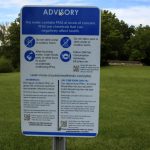Report Details Opioid Addiction Solutions
After listening sessions, WI Department of Health Services recommends expanded treatment and attention to root causes.
![Pills by Tom Varco (Own work) [CC BY-SA 3.0 (http://creativecommons.org/licenses/by-sa/3.0)], via Wikimedia Commons.](https://urbanmilwaukee.com/wp-content/uploads/2016/11/1024px-Lexapro_pills.jpg)
Pills by Tom Varco (Own work) (CC BY-SA 3.0), via Wikimedia Commons.
Those are among the findings of a new state report that resulted from a series of listening sessions around Wisconsin with substance abuse professionals, people in recovery and family members of those who’ve struggled with addictions. The recommendations that came out of the sessions included a range of interventions, including addressing childhood traumas that can put people at risk for addiction later in life and further expanding access to the overdose treatment naloxone.
The settlement comes as overdose deaths have spiked in Wisconsin and nationally. State data through 2020 show rising deaths from overdoses on opioids and from drug combinations. Some places, including Milwaukee County, saw a record number of drug overdoses in 2021.
In January, the Wisconsin Department of Health Services launched the series of listening sessions to gather input from those affected by the opioid crisis about how to spend its share of the settlement money.
“For me, what was very reaffirming … was that what the department has been investing in over the last five, six, seven years now is what (participants) believe is needed and what they want to see,” Paul Krupski, DHS’s director of opioid initiatives, said after the report was released.
“Unfortunately, I think over the last two years what we have seen is a lot of individuals have turned to substance use as a coping mechanism,” Krupski said. “Or, individuals who were already using substances have increased their substance use.”
By state law, 70 percent of the opioid settlement money will go to county and local governments and 30 percent will go to DHS.
“This money is going to transform our response to the opioid epidemic,” state Attorney General Josh Kaul, who was part of the multistate lawsuit, said in a recent interview with Wisconsin Public Radio’s “Central Time.” “My hope is to see those funds go toward long-term investments that can help us ultimately beat this epidemic, including funding things like treatment programs, prevention programs and recovery programs.”
Krupski also said a newly passed law that decriminalizes fentanyl test strips may also help to reduce drug overdoses. The tests can alert people using drugs to the presence of the highly concentrated, potentially deadly opioid that is increasingly present in many street drugs.
According to the DHS report, more than 500 people attended the 12 sessions, and the state received nearly 900 comments in response to a survey it distributed. Among participants in the listening sessions, 71 people identified themselves as having dealt with opioid addictions; 172 people said they were family members or friends of those with a substance use disorder; and 269 were medical providers or other stakeholders.
Listen to the WPR report here.
State report: Wisconsin can use millions from opioid settlement to bolster treatment, address addiction causes was originally published by Wisconsin Public Radio.
More about the Opioid Crisis
- Attorney General Kaul Announces Consent Judgment with Kroger Over Opioid Crisis - Wisconsin Department of Justice - Mar 21st, 2025
- Baldwin Votes to Strengthen Penalties, Step Up Enforcement Around Deadly Fentanyl - U.S. Sen. Tammy Baldwin - Mar 17th, 2025
- Wisconsin Communities Get Millions From Opioid Settlement as Deaths Decline - Evan Casey - Mar 1st, 2025
- MKE County: County Creates Easy Public Access To Overdose Data - Graham Kilmer - Feb 18th, 2025
- Milwaukee County Executive David Crowley and the Office of Emergency Management Launch New Overdose Dashboard - County Executive David Crowley - Feb 18th, 2025
- Fitzgerald Advances Legislation to Fight Opioid Epidemic - U.S. Rep. Scott Fitzgerald - Feb 6th, 2025
- Milwaukee Is Losing a Generation of Black Men To Drug Crisis - Edgar Mendez and Devin Blake - Jan 31st, 2025
- Milwaukee County’s Overdose Deaths Declined For Second Straight Year - Evan Casey - Jan 27th, 2025
- MKE County: United Community Center Awarded Drug Company Money For Addiction Treatment - Graham Kilmer - Jan 12th, 2025
- DHS Provides Update on Distribution of Latest Opioid Settlement Funds - Wisconsin Department of Health Services - Jan 9th, 2025
Read more about Opioid Crisis here






















Worth noting, Wisconsin would have gotten ZERO from this settlement under former AG Brad Schimel, because he was fine with letting the opioid makers ravage Wisconsin even if it wrecked communities.
Only because of Josh Kaul’s election, and decision to join the lawsuit, is Wisconsin getting this (fraction of) reimbursement for all of the damage caused by the opioid epidemic.
Just saying.